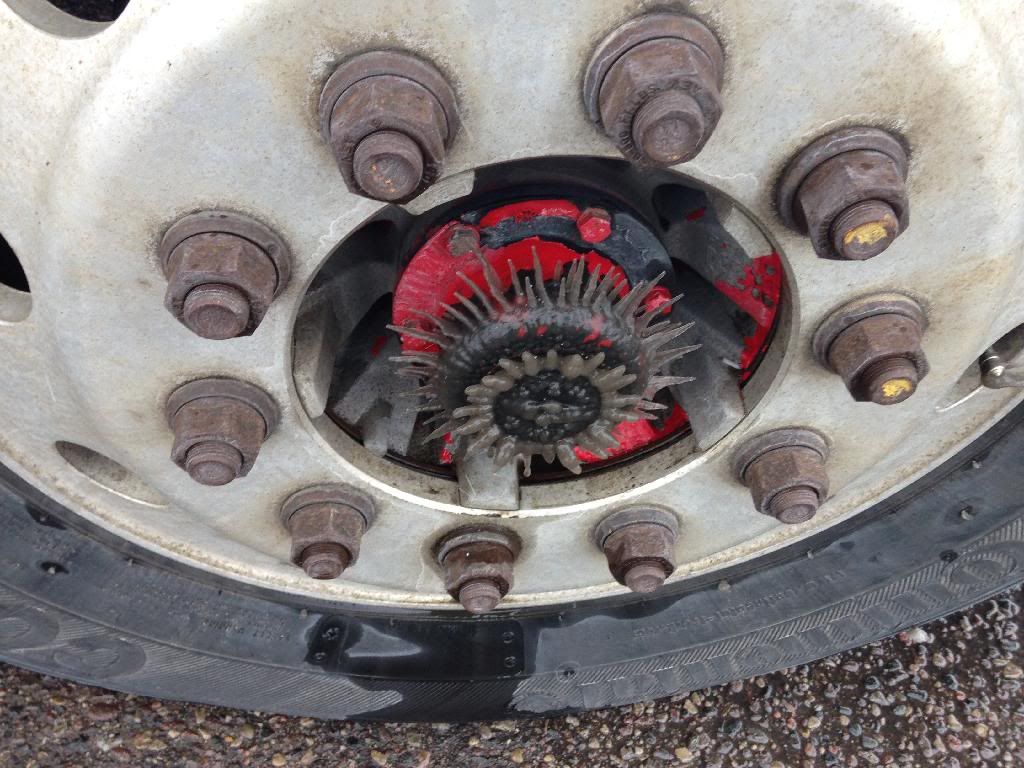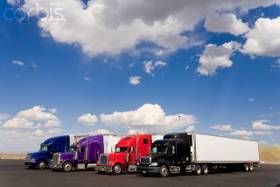Any Other Jobs I Can Do With A CDL A License?
Topic 3128 | Page 1

Local delivery driver, like driving a local Pepsi or Coke delivery combination truck would require a Class A license. Driving a delivery box truck requires a Class B license.
Dave

Oh BTW even with local driving you will still have diesel fumes cause those 5 rocks are also diesel powered and you will have some dusty lots also. Not sure how you will get away from the diesel fumes unless you only drive a car.
HOS:
Hours Of Service
HOS refers to the logbook hours of service regulations.
My question is, why are you breathing so many fumes? Diesel fumes are not good for anybody. That is why most mechanic shops, firehouses and other places have the vacuum systems in the bays to reduce the build up of diesel fumes. It causes cancer to breathe it. Yes, we still encounter the fumes for short periods but it should not be a lot everyday.

TSB is, and has been a severe asthmatic for over 45 years...and he has driven truck for those same 45 years. And 45 years ago, the fumes were alot worse... So, that being said, I think you have a much better work environment. Now...lets think about what you DON'T like about driving truck,,cuz theres something back there in your grey matter that has brought you to this situation. Your asthma attacks could be stress related, not dust or fumes. Your misgivings might be the whole idea of "going OTR"..the strange roads, strange cities, even stranger drivers... Driving OTR , or local is the same...the same fumes, the same dust, the same( and probably more) pollution. But your biggest problem is...you will have a REALLY hard time, as a unproven rookie, in getting a local job. You have the very basics on how to handle a semi in restricted areas, you have had basic training in docking, parking, fueling, etc. So even with your time out with a trainer, you will still be drippin' buckets from behind your ears. imho, you need to sit and figure out WHY you don't want to do a year OTR...that is your major problem at this point in your career.
OTR:
Over The Road
OTR driving normally means you'll be hauling freight to various customers throughout your company's hauling region. It often entails being gone from home for two to three weeks at a time.
HOS:
Hours Of Service
HOS refers to the logbook hours of service regulations.Yeah that's a tough one. And Starcar has a really interesting point - are you sure it's the diesel fumes? I know dry air and dust cause a ton of problems with asthma. I don't know if you're in a dry region or if your training is being done in a gravel lot but that could be part of it for sure. Then again, sometimes it just flares up and it's hard to say why.
There's no getting away from the fumes really. Even running local you're going to be exposed just as often.

I just started driving for coke. We have some pretty old school tractors but very rarely do we encounter excessive diesel fumes. While I was in CDL school I noticed the diesel fumes were pretty bad as well. But those were all old overly used tractors that were burning quarts of oil a week. For Coke or Pepsi, its the manual labor of hauling cases of soda you have to worry about.. not the fumes.
CDL:
Commercial Driver's License (CDL)
A CDL is required to drive any of the following vehicles:
- Any combination of vehicles with a gross combined weight rating (GCWR) of 26,001 or more pounds, providing the gross vehicle weight rating (GVWR) of the vehicle being towed is in excess of 10,000 pounds.
- Any single vehicle with a GVWR of 26,001 or more pounds, or any such vehicle towing another not in excess of 10,000 pounds.
- Any vehicle, regardless of size, designed to transport 16 or more persons, including the driver.
- Any vehicle required by federal regulations to be placarded while transporting hazardous materials.
HOS:
Hours Of Service
HOS refers to the logbook hours of service regulations.New Reply:
New! Check out our help videos for a better understanding of our forum features

















Preview:








 TT On Facebook
TT On Facebook
I am in trucking school and passed my written tests successfully. I am working on my road test now. It is fun driving the semi-truck and learning new maneuvers, but I am discovering that the diesel fumes are giving me asthma problems. I had to go to doctor twice to get steroids to open my lungs up because the fumes and dust were causing me to wheeze. I am not sure if OTR would be for me due to truck stops and pollution.
I was thinking of moving to a city with cleaner air and working as a local delivery driver --if I can find one. I applied at Pepsi and Coke.
I DO NOT want my CDL to go to waste. I love driving the truck but if its making me sick because of fumes...then what else?
Any ideas?
CDL:
Commercial Driver's License (CDL)
A CDL is required to drive any of the following vehicles:
OTR:
Over The Road
OTR driving normally means you'll be hauling freight to various customers throughout your company's hauling region. It often entails being gone from home for two to three weeks at a time.
TWIC:
Transportation Worker Identification Credential
Truck drivers who regularly pick up from or deliver to the shipping ports will often be required to carry a TWIC card.
Your TWIC is a tamper-resistant biometric card which acts as both your identification in secure areas, as well as an indicator of you having passed the necessary security clearance. TWIC cards are valid for five years. The issuance of TWIC cards is overseen by the Transportation Security Administration and the Department of Homeland Security.